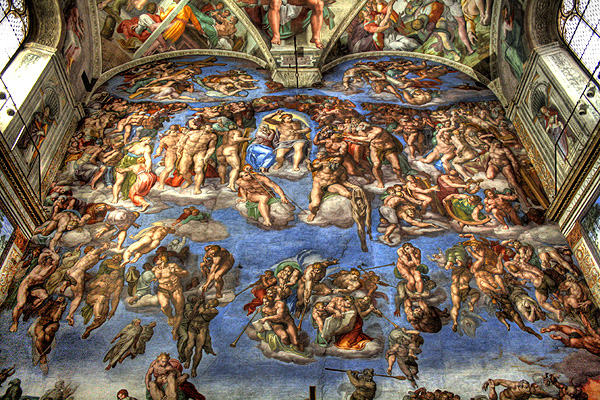All monotheistic religions have in their mythology the concept of a final judgement. Christians call it “Judgement Day”, Jews call it “יום הדין”, Arabs call it “یوم القیامۃ”, Persians call it “روز حساب”, and the ancient Archemenids in Iran also had a name for it but I don’t have the cuniform characters installed here.
The question for an atheist like me is always: shall I care about these fairy-tales of a life after death, in which my future postal address (a gated community in paradise or a bizarre existence in sin city) will be decided by a reviewing committee chaired by St. Peter ? I would say no. If I believe in a life after physical death, than it will be rather by cloning myself from my own iPS cells (which I have already stored in some tubes in my institutes liquid nitrogen tank) plus a complete 1:1 copy of my brain connectivity (to bring back all my memories, skills and personal characters). So I can say with some optimism: We are working on this issue. Therefore, there is no need to wait for a Final Judgement Day, and I would not like to stand in a queue with millions of religious hypocrites, from which ever faith, who are arguing with the frustrated judge and trying to prove that their lifelong martyrdom, self punishment or fight against other faiths should entitle them to a first class appartment in heaven. This idea either amuses or frightens me.
There is one idea of the Judgement Day, however, that reads really appealing and logical to me, and I am all to happy to believe in it. It is part of the Jewish mythology, where an important parameter of the judgement is to what degree a person exploited all the possibility in life to enjoy the world. This is really important, as compared to the stupid way of judging ones compliances with the religious dogmas. Finding a challenging job, having good sex, raising children, playing music, reading great books, entertaining other folks: little of this might count important for what the religious clerks always tell people is the Final Judgement. But in reality, it is the most relevant for a non-mythological life after death.
